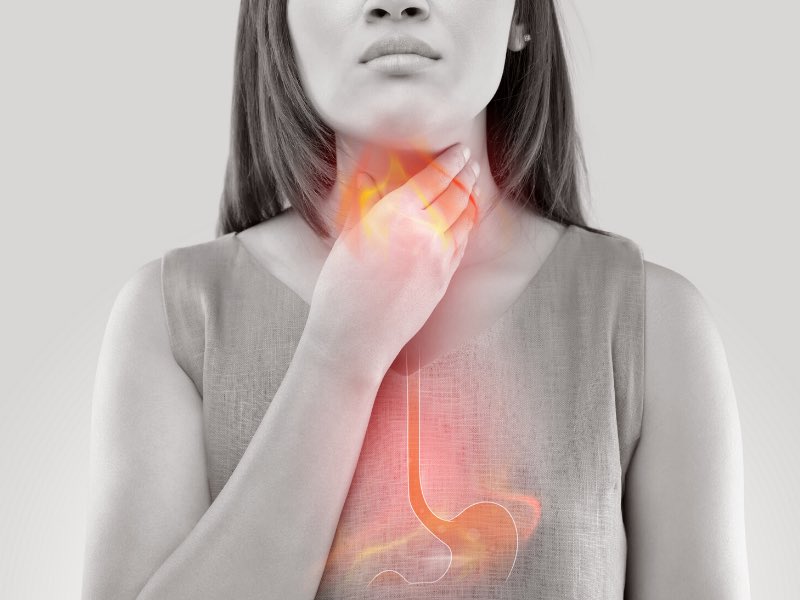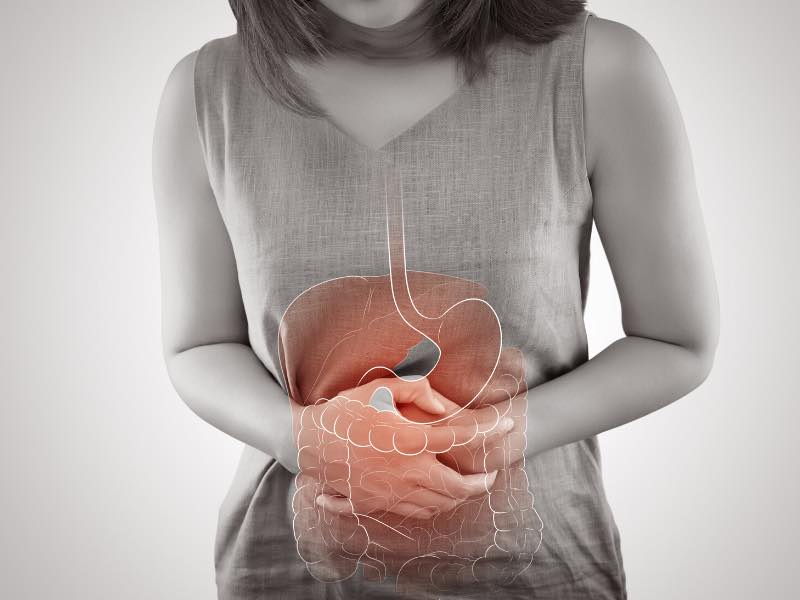Digestive Gut Issues
About
Heartburn – GORD
Gastro-Oesophageal Reflux Disease (GORD) Indigestion
Gastro-oesophageal reflux is when gastric juices return from the stomach to the oesophagus causing heartburn. This happens when the sphincter of the lower part of the oesophagus (when joining with the stomach) is loose and allows the reflux.
GORD can give rise to a number of symptoms such, burning in the throat, constant burping, a sensation of fullness, non-specific nausea, bloating or upper abdominal/chest ache/pain, bad breath.
Read more
Many GORD – REFLUX sufferers are prescribed proton pump inhibitors without considering the underlying cause.
Its best to investigate the underlying cause as soon as possible to avoid complications such as:
- Oesophagitis (inflammation of the oesophagus)
- Narrowing of the oesophagus
- Ulcerations
- Oesophageal adenocarcinoma
Usually, the patients suffering from GORD have an underlying infection that can be treated naturally with herbs and nutritional medicine.
Some of the underlying causes, can be stomach or small intestinal bacterial overgrowth (SIBO), H. Pylori infection, low stomach acids or other contributing factors.
Herbal medicine & nutritional treatment can be very effective when prescribed correctly.
Helpful hints
- Keep a healthy weight, as excess fat around the abdomen puts extra pressure on the stomach pushing fluids into the oesophagus.
- Do not lie down after a meal.
- Do not drink with your meals.
- Stop smoking. Smoking reduces the ability of the oesophageal sphincter to function as good as it should.
- Make sure that head of the bed is elevated.
- Avoid tight clothes around your waist.
Best to avoid
- Alcohol
- Coffee
- Cigarette smoking
- Soft drinks
- Chocolate
- Spicy foods
- Soft drinks
- Sweets
About
Irritable Bowel Syndrome
(IBS) Bloating & Constipation
Irritable Bowel Syndrome is a functional disorder of the gut, which means that the gastrointestinal tract is not working properly, but nothing is wrong with the structure.
The underlying cause of Irritable Bowel Syndrome is not quite clear. Various tests including endoscopy and colonoscopy should be performed to dismiss any other illness.
Read more
IBS is a condition that affects a large number of people in Australia, symptoms can include, bloating, stomach cramps or sensation of a dull ache, constipation, diarrhoea or it can alternate between both, food intolerances, vitamin deficiencies, skin issues, chronic fatigue.
It has been also shown to be associated with psychological issues like anxiety and depression which can significantly impact on patient’s quality of life.
The gut microbiome and gut permeability play an important role in the immunity and health of the body. Evidence suggests that dysbiosis (leaky gut) in the gut can make permeability worse. A well-balanced microbiota in the gut is essential. A reduction of Bifidobacteria has been associated with IBS
Several factors could initiate and maintain IBS, such as genetic predisposition after an acute gastrointestinal infection. Sometimes parasites such as Blastocystis Hominis or Dientamoeba Fragilis, high copper levels in the body can contribute. Stress and food sensitivities/intolerances are some other factors promoting IBS.
The digestive system besides breaking down food and absorption is involved in maintaining a healthy immune system. It also manufactures neurotransmitters like the serotonin which is responsible for the mood stability and euphoria.
There are foods that can trigger IBS like
- Large meals
- High fiber
- Alcohol
- Coffee
- Sweets
- Fried and fatty foods
- Soft drinks
The symptoms of IBS can be improved with a number of natural treatments the sufferer can achieve minimal or be symptom free.
It will be difficult to help your IBS when diet is poor, when you live a stressful life, eat fast food, consume alcohol and soft drinks, take antacids and non-steroidal anti-inflammatories.
Foods to avoid
- onion
- cabbage
- brussels sprouts
- dried beans
- lentils
- cauliflower
- dairy
- sugar
- artificial sweeteners
How can we help?
There are various ways to identify and treat digestive issues.


